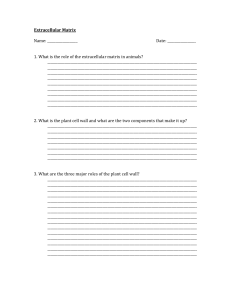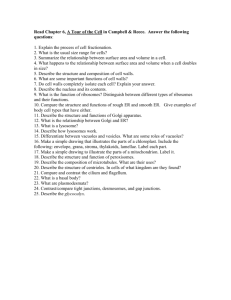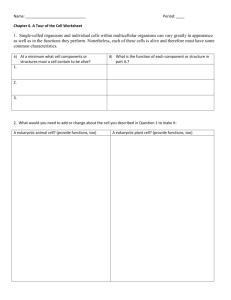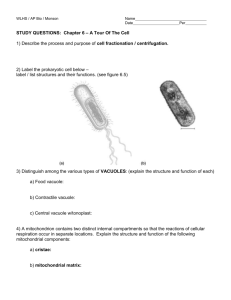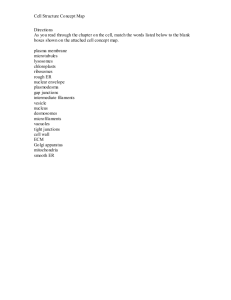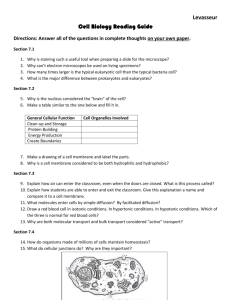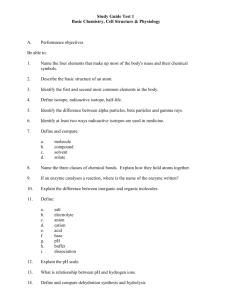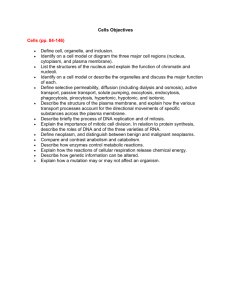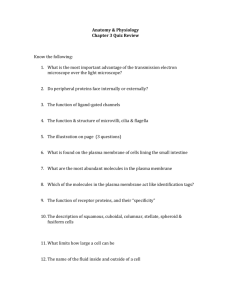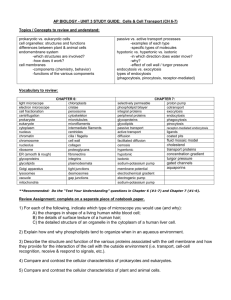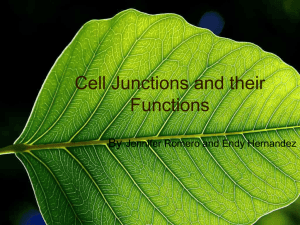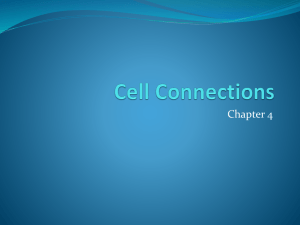Extracellular components and connections between cells
advertisement
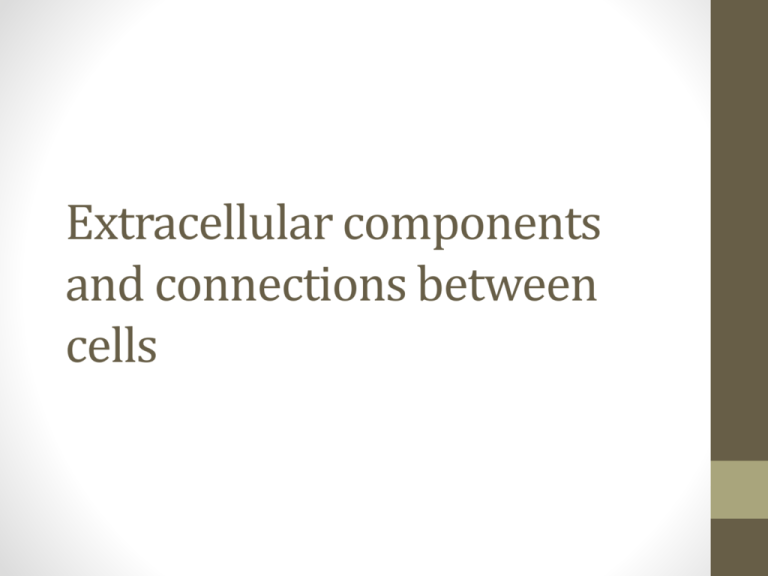
Extracellular components and connections between cells Plasma membrane • Regulates what goes in and out of the cell… • Outside of cell, there is the ECM – Extracellular matrix. • Glycoproteins • Collagen – forms strong fibers outside cells, 40% of protein in body • Integrins – cell surface receptor proteins, bind to associated proteins attached to microfilaments of the cytoskeleton. • Transmit signals between the ECM and the cytoskeleton, integrate changes inside and outside of cell. Figure 4.26a Cell junctions in animal cells • Especially common in epithelial cells • Tight junctions: plasma membranes tightly pressed against each other, prevent leakage of extracellular fluid across a layer of epithelial cells. Ex. Between skin cells – watertight. • Desmososmes – (anchoring junctions) – like rivets, fastening to cells into strong sheets. Attach muscle cells to each other • Gap junctions (like plasmodesmata in plant cells) – Communicating junctions, cytoplasmic channels from one cell to an adjacent cell. Membrane protein surrounding a pore that ions, sugars and AA pass. Ec. Heart muscle, animal embryos. Tight junctions prevent fluid from moving across a layer of cells Tight junction TEM 0.5 m Tight junction Intermediate filaments Desmosome TEM 1 m Gap junction Ions or small molecules Space between cells Plasma membranes of adjacent cells Extracellular matrix TEM Figure 4.27 0.1 m Cell wall of plants • Protection, maintains shape, prevents excessive uptake of water • Thicker than cell membrane • Contains cellulose Primary cell wall – in young plants Middle lamella – thin layer between primary walls of cells, contain pectins that are sticky and glues adjacent cells together. When mature, the cell may reinforce the primary cell wall or add a secondary cell wall between the plasma membrane and primary wall. Ex. Wood consists mainly of secondary walls Figure 4.25 Secondary cell wall Primary cell wall Middle lamella 1 m Central vacuole Cytosol Plasma membrane Plant cell walls Plasmodesmata Cell Junctions in plant cells • Plasmodesmata – in plant cells • Non-living cell walls are perforated with membrane-lined channels filled with cytosol. • Make cells continuous with each other. • Water and small solutes pass freely from cell to cell, proteins and RNA may as well.
